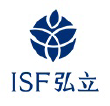Setting the Scene on a Virtual Stage: The Year Ahead
Aug 28, 2020
As we reach the end of the first full week of online instruction at the beginning of this academic year, I am writing to remind parents of some of the more important ‘tone-setting’ and information sharing events that are about to take place. This evening, we present the first of our annual series of ‘back to school nights’, in this case focused on parents of students in Foundation Year to Grade 2. Over the coming week, parents of students in Grades 3 to 5, along with all parents of students in the Secondary School, will have an opportunity to hear from their class teachers and other members of the relevant leadership group. While the mode of delivery will be virtual, the purpose of these important events remains unchanged: we seek to create a sense of collaboration and shared endeavour between home and school, as we embark on another year of learning together. Parents will have an opportunity to learn more about our plans for their child’s learning and assessment over the coming weeks and months.
The first in another series of events that typically marks the start of another academic year – the parent ‘coffee morning’ – is scheduled to commence next week. The first coffee morning, hosted by the Head of School, will go ahead in virtual mode. As in the past, I plan to share an overall snapshot of ISF at this point in time, focusing on some of the ‘big picture’ aspects of our school’s operations this year, including finances, analysis of academic results, staff recruitment, and strategic plans and aspirations looking ahead. In the following weeks, the other ISF school principals will host their own coffee morning events to share in more detail about teaching and learning in their respective divisions.
These events are important in any year, but under enforced social distancing and electronically mediated interaction between school and home, they are doubly important, as they seek to bridge the divide imposed on all of us by COVID-19. Physical isolation is an appropriate precaution to protect our health, but our community wellbeing also relies on personal interactions through which we build networks for sharing our hopes and fears, but which are also action-orientated. While the ‘stage’ for these events is virtual, the scene-setting remains critically important for all: parents, teachers, and of course our students. If possible, I hope you can participate in some of these important events to help you understand our intentions and contribute your own thoughts as we negotiate the important tasks at hand.
As I observe the institutional and community landscape at this time, it is difficult to avoid the feeling that we are being driven and drawn by powerful forces that defy easy identification and comprehension. While we aspire to act as if our lives and activities can proceed as ‘normal’, it seems that our world, once so familiar, has grown strange to us. Many of us are getting the new ‘normal’ wrong: take the IB’s massive revision of 2020 Diploma grades last week as an example. What can we say of the part many of us are playing in the world-spanning drama taking place at this time in history? Are we making good, wise choices about how we go about our lives, manage our affairs, run our businesses and educate our children? Debates rage about the human cost of distancing or the risks of embracing the largely untested theory of ‘herd-immunity’. Most of us just want things to return to normal.
In practice, we are left with the difficult task of balancing our sense of frustration at the restrictions placed on us,
many of which have a far-reaching impact on our lives and livelihoods, with the growing hope that they will be effective in returning our city to a healthy and prosperous state.
Intense public scrutiny of the gradually reducing daily case count is a phenomenon that only makes sense to those of us alive at this point in the 20th year of the 21st century. These events will be the focus of intense analysis by historians, scientists, and other academic researchers for decades to come. Truly, we find ourselves in times that can only be described as ‘interesting’, reflecting perhaps the spirit of the apocryphal Eastern curse, ironically only found in the English speaking world. Isolated, frustrated, and fatigued, we are nonetheless charged with the task of making the best of our ‘interesting’ times, testing our endurance and wisdom. History will judge how well we managed.
Dr. Malcolm Pritchard
Head of School
